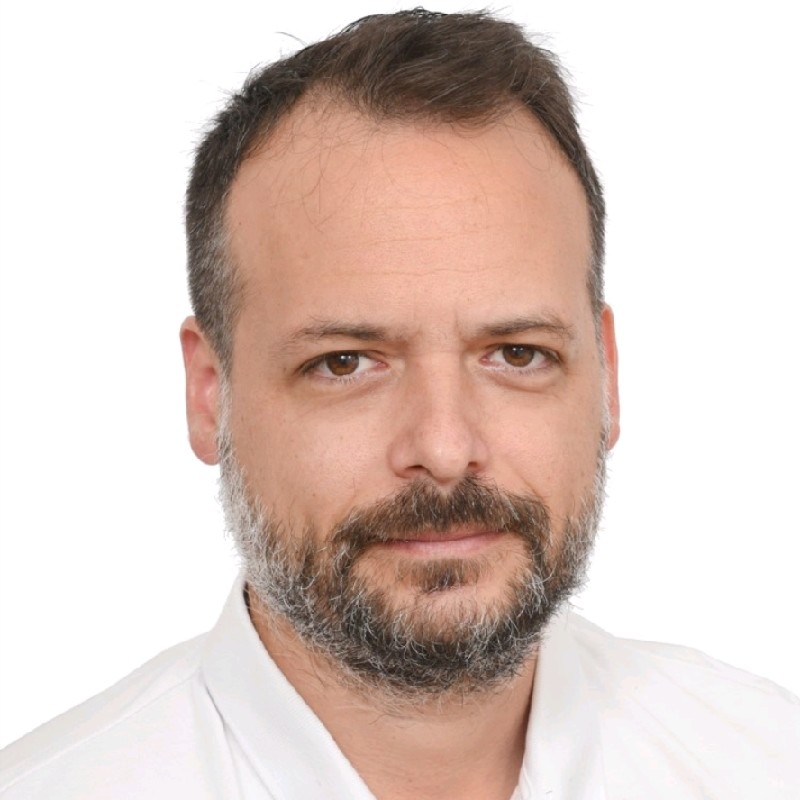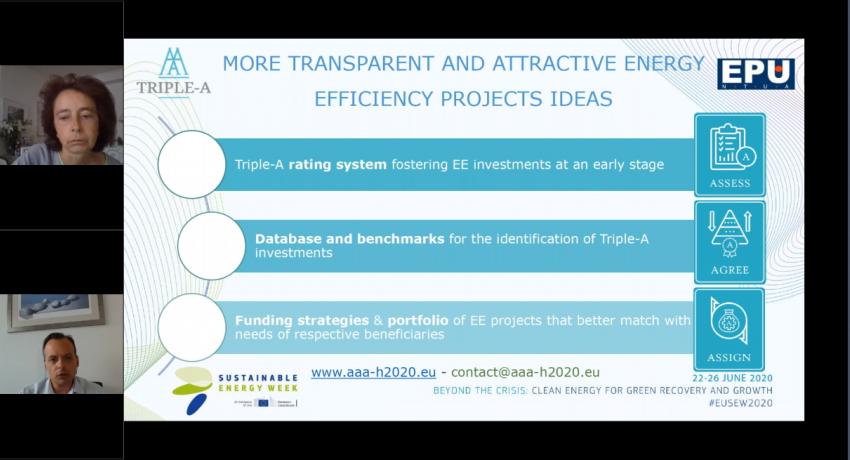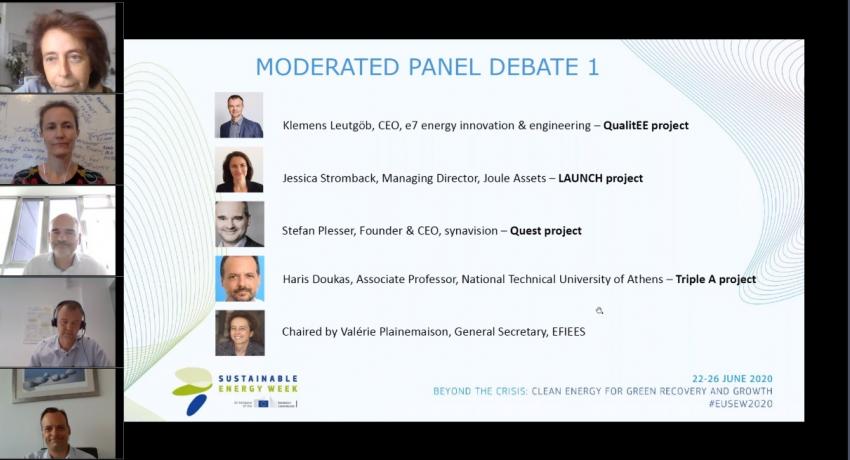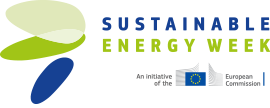Energy transition: new business models to de-risk investments and kick start the EU building renovation wave
The Triple-A project in cooperation with a group of 6 more projects coorganised the EUSEW2020 Policy Conference Side Session “Energy transition: new business models to de-risk investments and kick start the EU building renovation wave”.
The conference was organised within the framework of the EU Sustainable Energy Week, and took place at 12:00-13:30 CEST on the 18th of June 2020, virtually. The co-organising group consisted of Triple-A and the following Horizon 2020 EU-funded research projects. SENSEI, NOVICE, LAUNCH, QualitEE, QUEST and U-CERT.
To effectively de-risk investments in the building sector and facilitate the upgrading of building performance and energy efficiency services in Europe, policy, financing and technical tools need to work together in a coordinated and coherent manner. This session demonstrated how a selection of front running H2020 projects are working to overcome barriers to achieve the doubling of the building renovation rate needed to reach the EU’s ambitious 2050 goal of becoming the 1st 'Climate-Neutral Continent' (EU Green Deal).
These projects support the energy transition through cooperation in research and innovation, aiming to design and disseminate new business models, technical and financial tools, frameworks for standardisation and benchmarking of sustainable energy investments, as well as educational material and guidelines for European energy markets.
 On behalf of Triple-A, Dr. Haris Doukas, Associate Professor at NTUA, participated in the panel discussion explaining how energy efficiency project ideas could become more transparent and attractive through the Triple-A approach and how the relevant investments could be leveraged at an early stage. Dr. Doukas presented the Triple-A scheme and the Standardized Toolbox through his presentation with the title “More transparent and attractive energy efficiency projects ideas: The Triple-A case”.
On behalf of Triple-A, Dr. Haris Doukas, Associate Professor at NTUA, participated in the panel discussion explaining how energy efficiency project ideas could become more transparent and attractive through the Triple-A approach and how the relevant investments could be leveraged at an early stage. Dr. Doukas presented the Triple-A scheme and the Standardized Toolbox through his presentation with the title “More transparent and attractive energy efficiency projects ideas: The Triple-A case”.
Moreover, this session successfully managed to:
-
Present advancements in energy efficiency financing to foster sustainable growth and novel demand side business models, supporting the identification of transparent and predictable investments.
-
Illustrate practical examples of how existing and emerging financing and technical tools are facilitating building renovation projects and targeting recommendations on policy framework and market architecture.
-
Gather feedback from relevant stakeholders to improve the policy-relevance of project outcomes, actively engage and invite them for further collaboration on energy efficiency financing.
The session addressed key current challenges, such as mainstreaming energy efficiency finance through innovative mechanisms, valuing energy efficiency infrastructure and demand-side flexibility as energy resources, and highlighting the role of standardised technical quality criteria and certification schemes.
Concerned stakeholders:
-
Policy makers, policy support institutes & public authorities
-
Energy utilities, EPCs providers, ESCOs, housing associations, aggregators, building sector professional stakeholders, construction companies & building technology suppliers
-
Investment banks and funds, insurance companies, financial advisors, Unit Investment Trusts and develop./manag. of financial products
-
Energy system operators and regulators: TSOs, DSOs, ACER
-
NGOs, Think Tanks, Energy Agencies, citizen groups and consumer associations
The session's agenda is available here and the presentations here!
Watch below the session's video recording where Dr. Doukas presents Triple-A.
The whole recording of the policy conference is available here.
Watch here a video explaining the Triple-A scope, methodology and expected results!
- Log in to post comments




